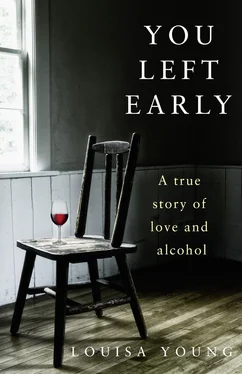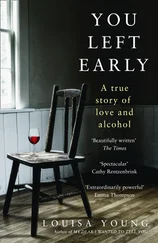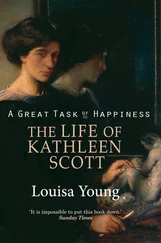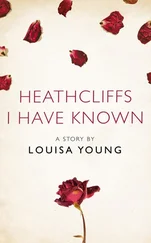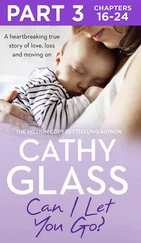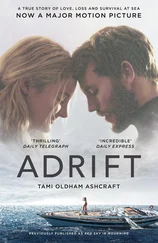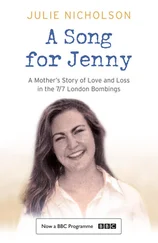Many years later, we discussed it. He said, ‘You could have rung me. You’re a feminist.’ But girls didn’t ring men in those days. Even educated feminist London girls. Politics was all very well, fear of rejection was something else. And there were none of the modern alternatives – a Facebook friending or a witty little tagged snap on Instagram of something of mutual interest. The telephone was all you had. Or a letter, but Christ, a letter! The permanence! No, it was the telephone or nothing, and that meant the possibility of having to talk to his mother, or his flatmate, or, if you did get hold of him, of the embarrassed silence. Boys, of course, had to face this great compounding pyramid of potential embarrassment all the time. (There was a sub-clause whereby if a girl was more attractive than the man she was allowed to ring, as long as she was prepared to take the risk that as the man was less attractive, he might be over-awed, or as we called it, ‘scared of you’. But this never worked in practice, because then as now most girls thought themselves unattractive, and even if they didn’t they weren’t allowed to admit it, for fear of being labelled ‘full of herself’. No, ringing a man you fancied meant you were desperate.)
We – girls – well, I – believed that the boys knew what they were doing. I believed they had thought about it, and were doing it on purpose. I assumed they had all the power. By assuming that, I actually gave them all the power. I didn’t learn that for another twenty-odd years. I wish I had rung him. Everything might have been different. But no. I sentenced myself to a ludicrous punishment: burn with desire, and keep quiet about it.
‘What would you have done if I’d rung you?’ I asked.
‘I’d’ve loved it,’ he said. ‘I’d’ve been flattered.’
‘But why didn’t you ring me?’
‘Because I was a little twat.’
*
Many years later, in Primrose Hill with Emma, she pointed out the flat where she used to live. It was on a different street. It didn’t look out over Primrose Hill. It had no balcony.
I pointed out the balcony I remembered, a few streets away. She had never been in that building.
But I remember. There had been a brightly patterned rug hanging on the wall on the left as you went in; reds and oranges.
‘Hm.’ She looked doubtful. Neither of us knew if we remembered or not.
And then in November 2015, poking around in my own past for structure for this book, I found this. (The previous entry ended: ‘I’m going celibate’.)
From my notebook: 20 December 1982:
Friday night to a party full of precious hunch-shouldered Oxford boys working on modern TV channels.
‘Oh goody,’ Emma cries, ‘my pianist has arrived. Such a shame we don’t have a piano.’
‘Who is your pianist?’ I enquire.
‘Oh he’s wonderful, he comes from Wigan and he’s …’ Rob Lockhart, of course. Who was being his usual sweet dirty charming self, uttering his usual friendly lascivious greetings. ‘One of these days someone is going to take you seriously,’ I say.
‘I wish you would,’ he replies.
‘OK, I do.’
‘What, now?’ he says.
‘Perhaps a little later,’ I suggest.
‘Excellent!’ he says.
And so we check up on each other periodically and then run off up Primrose Hill in the frost and kiss in a most fourteen-year-old haze of clothes and cold and party smells. He slips one shoulder out of my clothes and kisses my throat, and we run down the hill and into a taxi and take the piss out of each other all the way to the Queenstown Road.
‘I’ve changed my mind,’ he says. ‘You see I went off the pill last week and I’ve got my period.’ (True of me, but not of him.) ‘And I’ve just broken up with someone and I’m still very depressed about it …’ We bought kebabs and chocolate among the skinheads. ‘But could you bear to wake up to this face on the pillow tomorrow morning, or will it be just one of the worst figments of your hangover?’ And all through, the feeling that we don’t have to do anything, we’re just mucking about together.
At home he played and I sang Cole Porter, drank tea, I went to the loo, he hopped into bed. I grew a little shy as we sobered up, towards three. ‘Are you going to sit there and read me a bedtime story and then creep off somewhere else?’ he asked. Nope.
I rang Tallulah today as I felt she ought to know. ‘Well one of us had to before he lost his looks,’ she said. ‘Was he good?’
‘Yes.’
‘I thought he would be.’
He was. It was. Complete and revitalising and full and bloody nice. Literally, actually – ‘I’ve bled all over everything, oh dear,’ I say.
‘Sooner you than me,’ he says. ‘You’re meant to. I don’t mind if you don’t.’
In the morning he said, ‘Well, what do you reckon to the face then – weedy, anaemic, pathetic …’
The house, including Claude looking for socks, Rory looking for Kevin, Kevin looking for gas fittings to build the bathroom with, came and went about their business. We got up around five, knowing that as a one-night-stand we couldn’t push it to the second night, but could make the first last as long as possible. He slept very very deep, very long, very quiet. Hardworking boy. Talking about music, first and last. ‘What’s the point of music? I’ll tell yer. Order from chaos. You don’t know where you’re being taken. But when you get there, it’s all all right. Of course it’s not so effective if there’s not an interesting route taken, enough chaos on the way, and that’s why Mozart is so fucking dull, it’s all order, nothing but fucking order …’ And food. ‘I’ll take you there,’ he says, of a Thai restaurant. I quite wish he would. I quite want more, of course, but
i) I’m celibate
ii) I don’t want a boyfriend I want love
iii) If I did it wouldn’t be Lockhart
iv) You don’t get love from one-night stands
v) (iii) and (iv) vice versa.
So we parted on the corner with a friendly peck and a see-ya, and that’s it. It has cheered me up no end, so much I did two dance classes on Sunday.’
The notebook continues with seeing my friend off to Hong Kong, having breakfast in bed with my housemates Claude and Berny, band rehearsal, washing the sheets, a long talk with Tallulah where she says that he wasn’t actually planned as the father of my kids but that evidently a good time was had by all. ‘I have the obvious leaning towards Lockhart but the head says no’ – and then: ‘Lockhart called to say don’t cash the cheque yet and he’ll be in touch when he’s back from Christmas in Wigan’.
He called?
All that resentment about not ringing was about nothing ? What, I somehow made that up ?
And then, a few weeks into the New Year: ‘Tonight I had dinner with Lockhart. Nice. We took a taxi to Queensway because he is so thin that he couldn’t take the cold.’
I had been totally maligning him as a discourteous Lothario, for decades. He was a courteous Lothario, and by this evidence so was I. In this contemporary account I am giving every impression of not particularly wanting to continue our liaison. I have rewritten history. Hmm. Thank you, memory.
And I’m wondering – why was there a cheque? My mind leaps in to assist: perhaps the cabbie wouldn’t have taken a cheque, so I paid cash and Robert, insisting on paying the fare, gave me a cheque. That makes sense. It must have been that.
Dangerous phrases, ‘that makes sense. It must have been that’. Armed with those phrases a passing thought can march off into the back of your head and set up in its pomp as memory, as truth even, claiming through the passing years all the rights and privileges of those titles, to which it is not, actually, entitled. It can permeate a person’s overall idea of what their life has been.
Читать дальше
